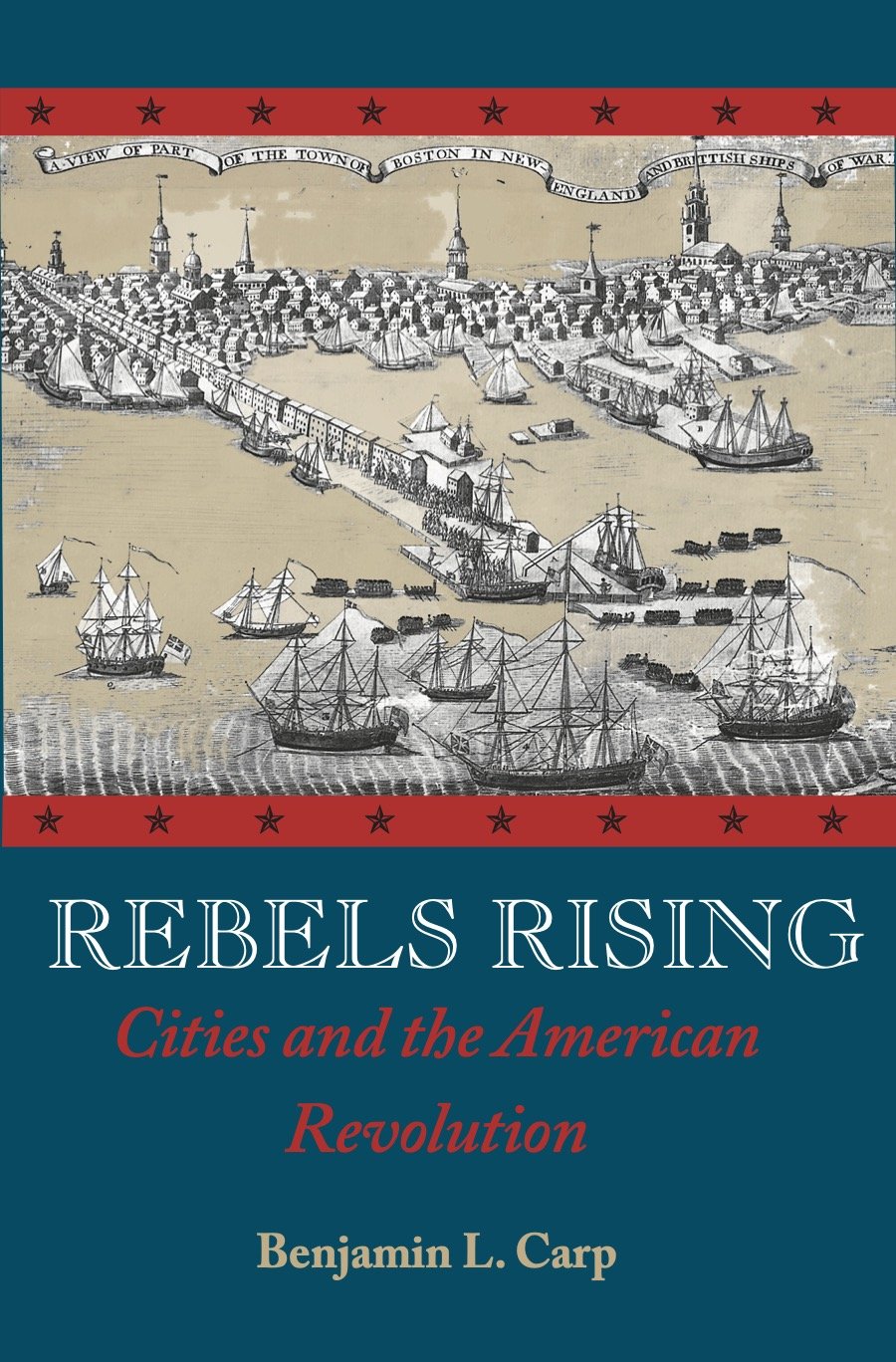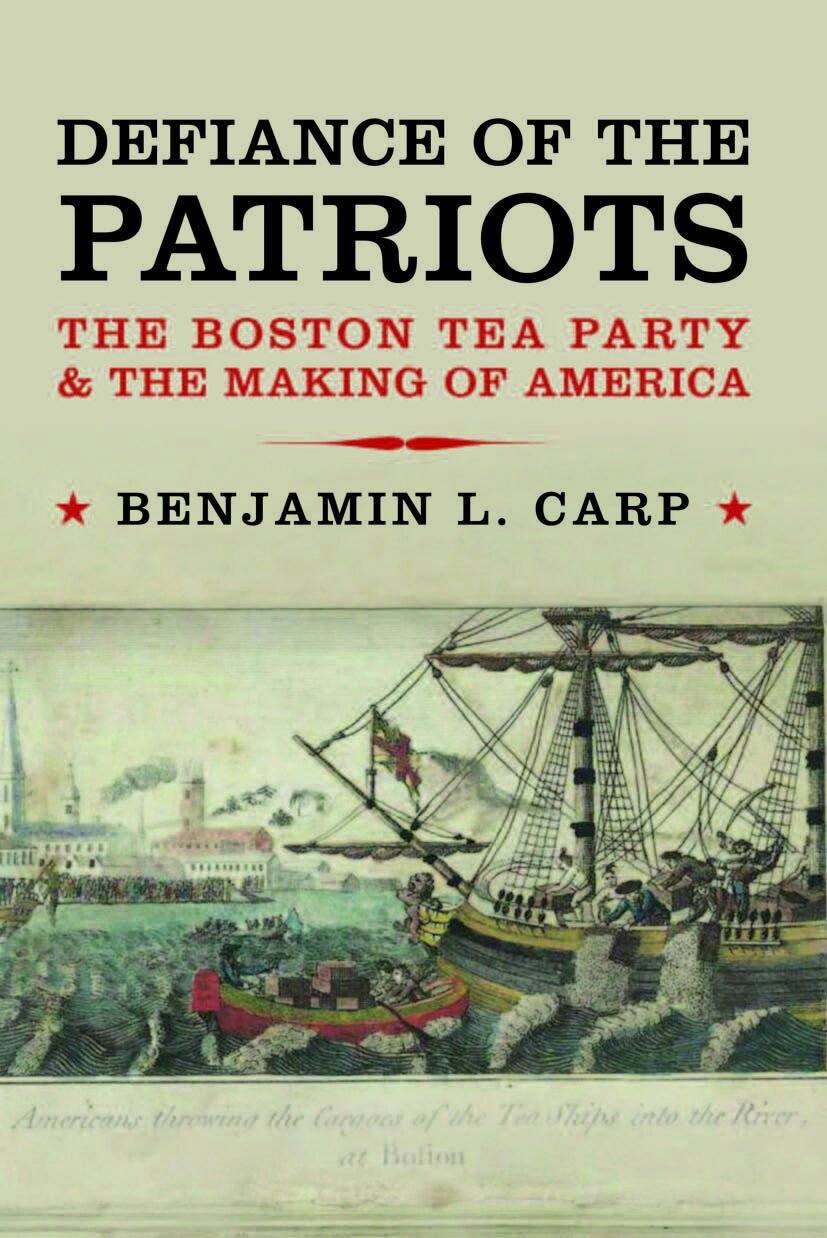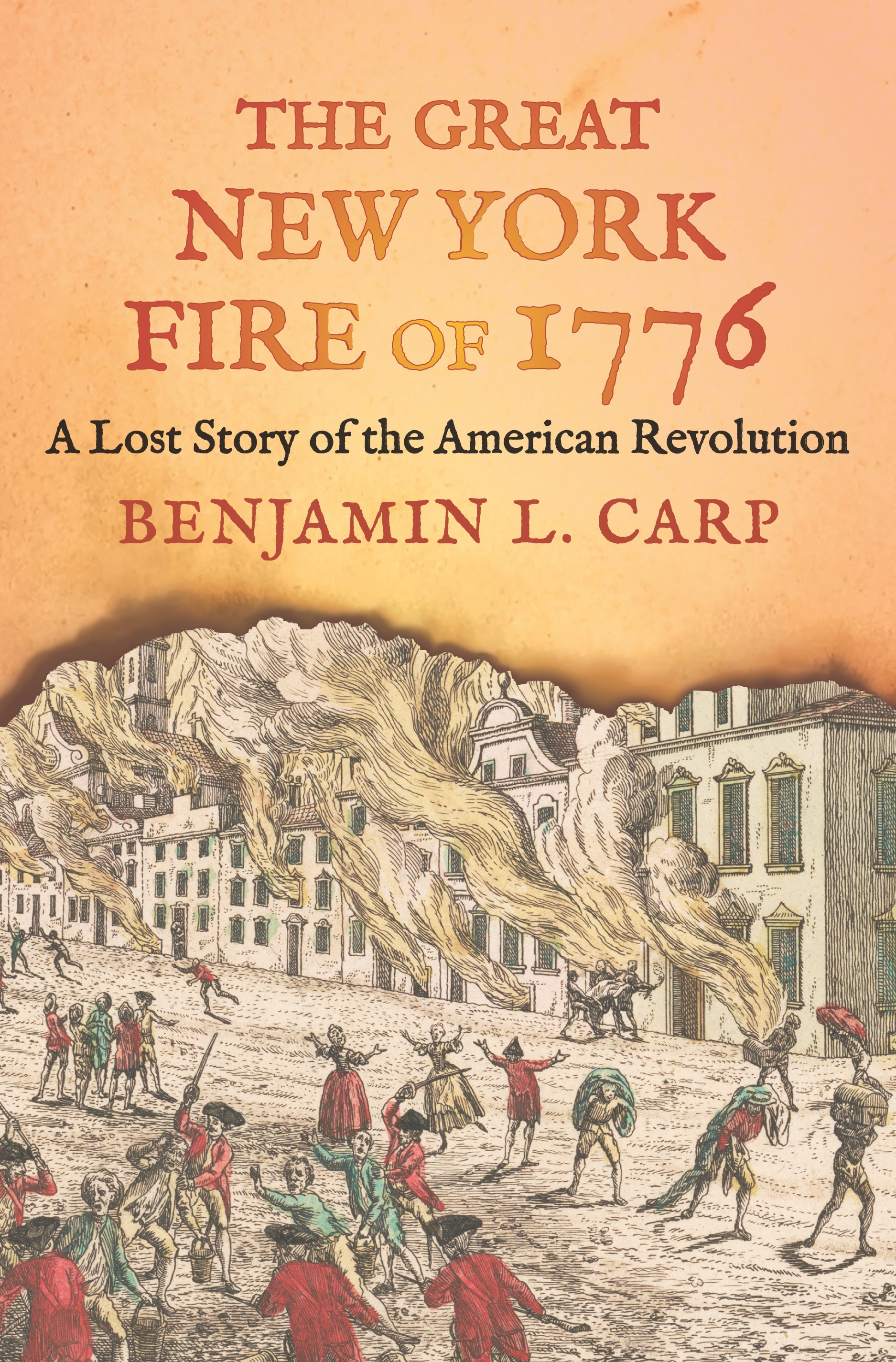Books by Benjamin L. Carp
Who set the mysterious fire that burned down much of New York City shortly after the British took the city during the Revolutionary War?
New York City, the strategic center of the Revolutionary War, was the most important place in North America in 1776. That summer, an unruly rebel army under George Washington repeatedly threatened to burn the city rather than let the British take it. Shortly after the Crown’s forces took New York City, much of it mysteriously burned to the ground. This is the first book to fully explore the Great Fire of 1776 and why its origins remained a mystery even after the British investigated it in 1776 and 1783. Uncovering stories of espionage, terror, and radicalism, Benjamin L. Carp paints a vivid picture of the chaos, passions, and unresolved tragedies that define a historical moment we usually associate with “life, liberty, and the pursuit of happiness.”
An evocative and enthralling account of a defining event in American history
This thrilling book tells the full story of the an iconic episode in American history, the Boston Tea Party—exploding myths, exploring the unique city life of eighteenth-century Boston, and setting this audacious prelude to the American Revolution in a global context for the first time. Bringing vividly to life the diverse array of people and places that the Tea Party brought together—from Chinese tea-pickers to English businessmen, Native American tribes, sugar plantation slaves, and Boston’s ladies of leisure—Benjamin L. Carp illuminates how a determined group of New Englanders shook the foundations of the British Empire, and what this has meant for Americans since. As he reveals many little-known historical facts and considers the Tea Party’s uncertain legacy, he presents a compelling and expansive history of an iconic event in America’s tempestuous past.
While port cities connected the American colonies economically, politically, and culturally to the British empire, urban colonists, Benjamin L. Carp argues, were among the first to slough off their British identity and unite as Americans. Looking at the physical environments of cities as political catalysts, Carp contends that what began as interaction, negotiation, conflict, and compromise in churches, taverns, wharves, and city streets developed into a wider political awareness and collaborative political action. City dwellers ability to transmit their ideas to their neighbors in rural areas was an important step on the path to Revolution. Carp focuses on a specific type of space in each of the five largest cities of the Anglo-American colonies maritime and commercial spaces of the Boston waterfront; the taverns of New York; the houses of worship in Newport; the households of Charleston; and the streets outside the halls of power in Philadelphia. While each of the chapter takes a single city as a case study, each also illuminates the conditions and changes taking place elsewhere from the 1740s to the 1780s. In the epilogue, Carp discusses how these cities became untenable and ineffective as sites of political mobilization during wartime, and how patriots moved administrative, military, and economic management to the hinterlands. In discussing the diverse backgrounds, interests, and classes of the people mobilized for the Revolutionary cause, Carp includes artisans, free blacks, slaves, and women. This groundbreaking work will contribute to scholarship on the American Revolution, as well as those who study material culture, geography, urban studies, and the local history.






